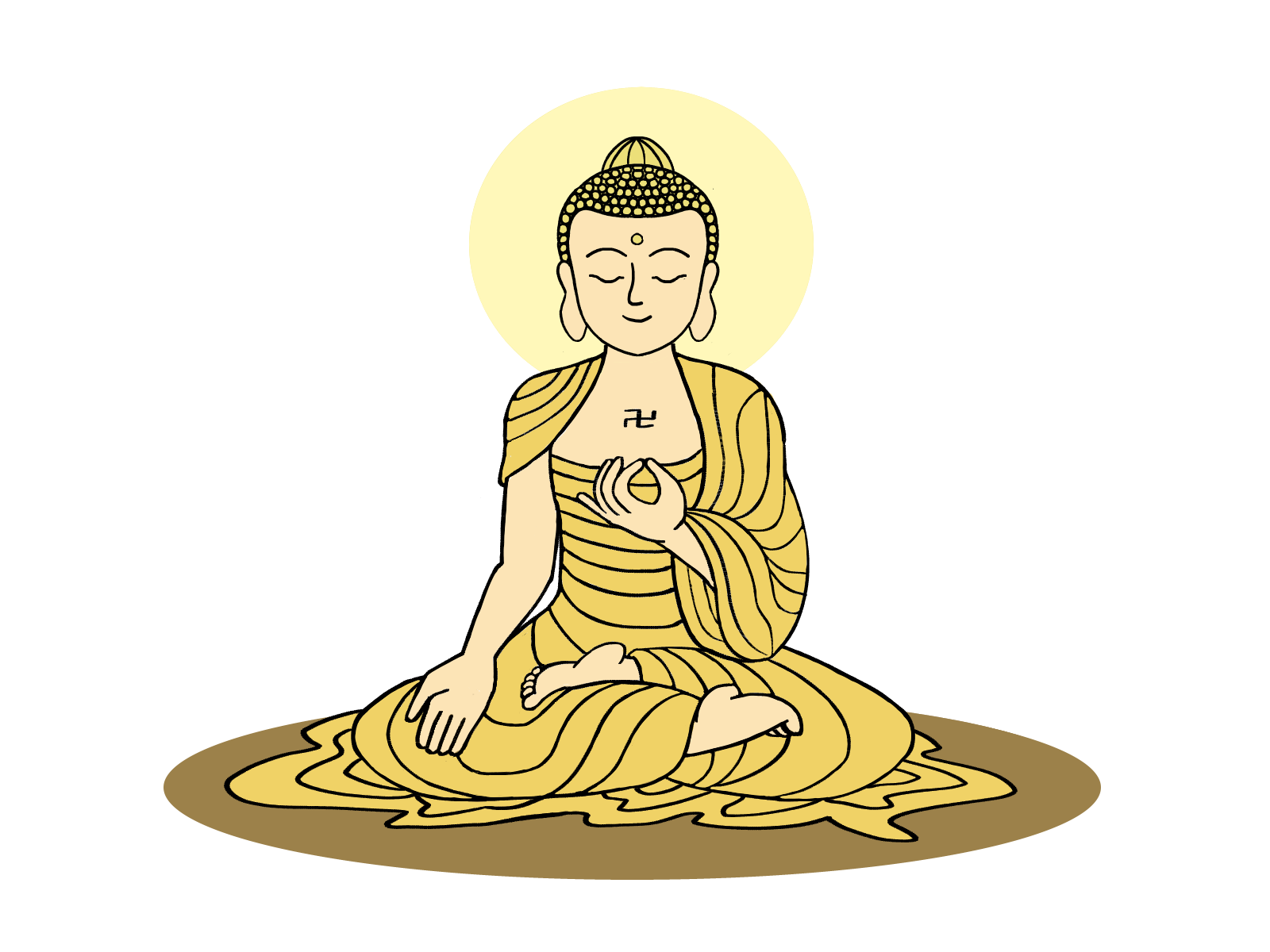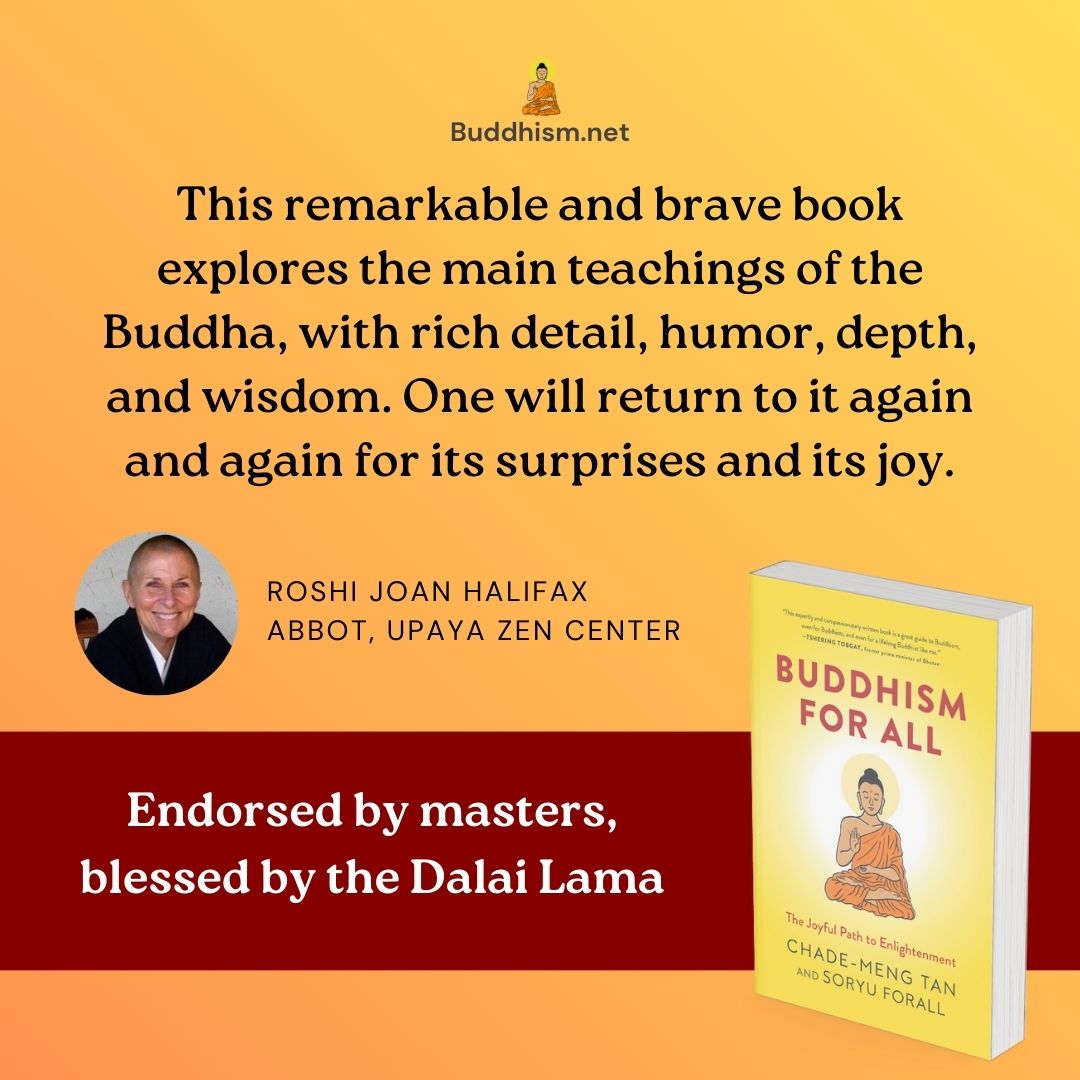
Now that you have learned briefly about Dharma and many features of Buddhism, let us now undertake a joyful exploration of Buddhism.
- In Topic 2, we start with the story of the Buddha, the person who discovered the Dharma and founded Buddhism. Besides getting to know the founder of Buddhism, you will see some of the fascinating features of Buddhism begin to show up. For example, you will find that gods have no role whatsoever in the enlightenment of the Buddha, which explains the nontheistic nature of Buddhism. You will also find the central role of joy and investigation in the Buddha’s enlightenment, again foretelling their central role in his eventual teachings.
- In Topics 3 to 6, we will examine in detail the Buddha’s core teachings, known as the Four Noble Truths. Here, the scientific nature of Buddhism really begins to show. One key insight coming from the Four Noble Truths is that suffering is subject to cause and effect, and therefore, Buddhism is about deeply understanding the cause of suffering and, through that understanding, gaining liberation from suffering. Therefore, liberation from suffering is taken out of the realm of religion and placed squarely into the realm of careful investigation into cause and effect, which is of course, the scientific attitude.
- In Topics 7 to 9, we take a deep dive into three major topics: right mindfulness, right samadhi, and virtue. The secular nature of Buddhism really begins to show here. These topics describe the core practices of Buddhism that can take you all the way to nirvana, and you will find that they have no religious elements at all. Zero. You will also find that these practices do not require identifying yourself in any prescribed way, or adopting any particular believes concerning race, gender, caste, politics or religion, and that is why Buddhism is so inclusive.
- In Topic 10, we take an even deeper dive and explore underlying topics such as karma and dependent origination.
- In Topic 11, we aim right for the bullseye on how we can all use all that knowledge to see nirvana directly.
- In Topic 12, we will present the exciting story of how one of Soryu’s students arrived at the direct experience of nirvana. From that story, you will also gain a deeper understanding of liberation.
By the end of Topic 12, you will have gained an excellent understanding of core Buddhism, and the direct path to nirvana. You will also begin to see how Buddhism is joyful, secular, scientific, inclusive and liberating.
To those of you already familiar with Buddhism who might be tempted to skip portions of Topic 2 to 12, we say: no, do not skip any of it. Even those already familiar with Buddhism will unearth many very important gems in there. The reason is the breadth and depth with which Soryu and I approach this topic. While some may think of the Four Noble Truths as the “basic stuff” to quickly go over, Soryu and I present it in the same spirit that the Buddha had presented it in the early Buddhist texts: as one of the most important, most profound and most transcendent teachings. You will see Soryu and I cast a huge net over the entire breadth of the massive early Buddhist canon, combined with Soryu’s familiarity with multiple schools of Buddhism, to present a teaching that is at once approachable even to those learning about Buddhism for the first time, yet deep and comprehensive enough to illuminate the path to enlightenment.
Following that, in Topics 13 to 17, we will look at Buddhism in relation to five things:
- How Buddhism views miracles and gods, which may be very surprising to you, answering the question of whether Buddhism is a religion or not.
- The unexpectedly intimate relationship between Buddhism and science.
- How a small, fascinating group of monks heroically preserved early Buddhism.
- How we ended up having sects in Buddhism, and how we can enjoy sects.
- How you don’t have to be a Buddhist to be a Buddhist, and how inclusive Buddhism can be.
When Soryu and I encountered Buddhism, we both arrived at the same conclusion, that it can be profoundly life-changing and that it presents the true solution to all suffering. More than that, we feel it is the path to peace on earth. If large numbers of people practice Buddhism, there will be a lot more joy and less suffering in the world. The world will be far more peaceful, and the planet will be taken care of. This is it, friends! We hope Buddhism will benefit you tremendously.
Activities

